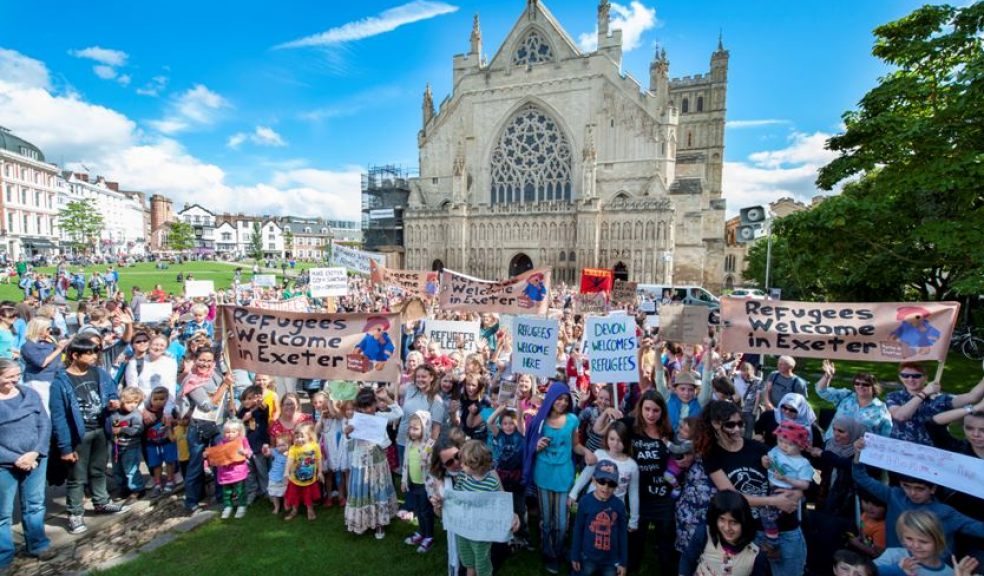
A Safe Haven: Devon’s Response to the Refugee Crisis
As the number of people seeking refuge from atrocity soars to unprecedented levels globally, Devon’s residents are rallying to give support.
Recent months have seen a surge in local initiatives to assist asylum seekers and refugees at home and abroad. This is in sharp contrast to the slow and minimal government response to the crisis.
The situation has led longstanding charity Refugee Support Devon (RSD) and the newly formed Exeter City of Sanctuary (ExCoS) group to publish a brief encouraging Devonians to continue their efforts in 2016 and beyond. It also calls upon local and national government to quickly deliver on their existing promises and to ramp up their efforts to provide safe havens for asylum seekers and refugees, in line with the magnitude of the crisis.
“Refugees and asylum seekers need the support and compassion of ordinary people now more than ever”, says Abigail Grace, Project Development Worker at RSD.
“Many of the crises driving people to flee their homes continue unabated and those seeking refuge are extremely vulnerable, their plight worsened by the winter conditions. At RSD we have been moved by the groundswell of local interest and support on this issue. People in Devon can make a real difference to the lives of refugees and we want to encourage and support this to happen.”
Grassroots refugee support groups mushroomed countywide in the second half of last year, carrying out a multitude of activities. Among them is Totnes Beyond Borders, which has set up an online forum for local people to volunteer and coordinate support.
In Exeter, one person used Facebook to organise a rally in support of refugees, which saw 600 people turn out. In numerous other towns and villages people held events, raised funds and organised petitions.
In contrast to the dynamic support shown by many of Devon’s residents, local and national government have been slower to act. Despite Exeter City Council’s announcement in early 2015 that the city would again become a dispersal area for refugees and asylum seekers, the Home Office has yet to confirm details.
Exeter Council has been proactive in supporting the Syrian Vulnerable Persons Scheme (SVPS), coordinated regionally by Devon County Council, and plans are slowly moving forward.
Other larger towns across Devon could also become dispersal areas and may take part in the SVPS, but in most cases details remain vague. Such slow progress reflects the wider sluggish and limited response by central Government.
“The UK response to the refugee crisis to date has been grossly inadequate. Its offer to accept 20,000 Syrian refugees over 5 years falls far short of what other countries are doing - even those much smaller than ours such as Denmark and the Netherlands”, says Nick Gill, Associate Professor of Human Geography at Exeter University and a founder member of ExCoS.
“We need to see a more humane and compassionate response to this crisis. The people of Devon can help make that happen.”
The brief provides advice and ideas on how local people can respond effectively to the crisis, including volunteering, fundraising and awareness raising, along with key advocacy points for those wishing to lobby their local counsellors and MPs. It also includes a list of reputable organisations that assist refugees and asylum seekers locally, nationally and abroad; and it announces a forthcoming map of local refugee support groups.
The full issue brief: is available here: http://refugeesupportdevon.org.uk/publications/a-safe-haven-2/
For more information visit www.refugeesupportdevon.org.uk














